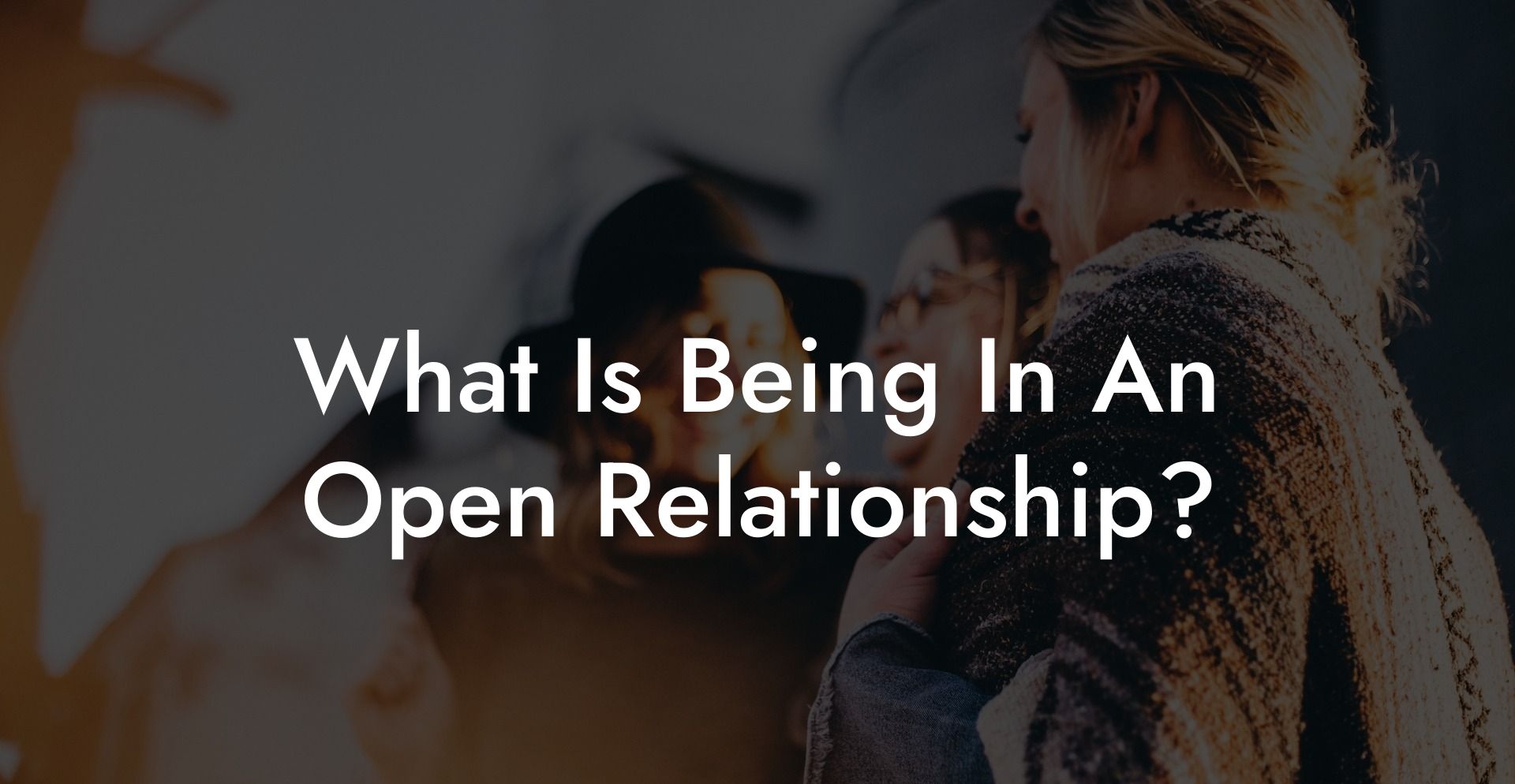Have you ever wondered about exploring a different kind of relationship? Do you believe that there might be more than one way to maintain a connection with your partner, or partners? If so, you belong to an ever-growing community of people who are experimenting with new relationship dynamics, like open relationships. In this blog, we will provide a comprehensive guide to understanding open relationships, diving into their complexities, benefits, and challenges.
What Is Being In An Open Relationship Table of Contents
So, open your mind to new possibilities and read on to learn about this exciting alternative to traditional monogamy. And don't forget to share this article and explore our other contents for more insights on The Monogamy Experiment!
An open relationship, also referred to as non-monogamy or non-exclusive dating, is a consensual arrangement within a couple that allows both members to engage in romantic or sexual experiences with others. This is in contrast to monogamy, where both partners commit to an exclusive relationship, usually allowing sex, dating, or marriage with other people.
Open relationships come in various forms, including:
Consensual Non-Monogamy (CNM)
Both partners agree to have romantic or sexual relationships with other people. Forms of CNM include swinging, polyamory, and relationship anarchy.
Polyamory
The belief that multiple romantic, emotional, and sexual relationships can coexist concurrently with the consent of all parties involved. These relationships can be hierarchical or non-hierarchical depending on the priorities and boundaries of the participants.
Swinging
Engaging in recreational sexual activities, often as a couple, with other like-minded individuals with an emphasis on the physical aspects of the relationship rather than emotional intimacy.
Open relationships have their unique benefits and challenges. Let's have a closer look at them:
Benefits
Greater openness and communication
Open relationships require partners to be forthcoming and communicative about their desires, boundaries, and emotional wellbeing. This openness can result in a stronger emotional connection and relationship satisfaction.
Exploring personal identity
Opening up a relationship can give individuals the opportunity to explore their sexuality and personal identity, leading to increased self-awareness and confidence.
Reduced pressure for exclusivity
In an open relationship, partners accept that one person may not be enough to fulfil all desires and needs. This understanding removes the pressure for exclusivity and creates a more relaxed environment for personal growth and self-discovery.
Challenges
Jealousy and insecurity
One of the most significant challenges of open relationships may be dealing with feelings of jealousy and insecurity when a partner is with someone else. It takes time and effort to work through these emotions, and it's essential to communicate these feelings openly and honestly.
Misconceptions and stigma
Open relationships are still not widely understood or accepted by everyone. Those in open relationships may face judgment or misunderstandings from friends and family members.
Time management
Balancing multiple relationships can be time-consuming and exhausting. Ensuring you maintain healthy relationships with all involved can be challenging but crucial for the longevity and success of your open relationship.
Example
Luke and Emma have been in a monogamous relationship for three years. They love each other deeply but feel that they both have additional desires that they would like to fulfil outside of their relationship. After a great deal of communication and setting boundaries, they decide to explore an open relationship. Now they date others independently, maintaining a hierarchy with each other as primary partners. This new arrangement has allowed them to grow individually, and their bond has strengthened through open communication and trust.
Choosing to be in an open relationship is an exciting and challenging decision that must be made with open communication, trust, and honesty. While it may not be for everyone, one thing is for sure: exploring alternative approaches to monogamy can lead to personal growth, self-discovery, and greater understanding for all involved.
If you found this article helpful, we encourage you to share it with friends and explore our other contents on The Monogamy Experiment website. Together, we can build a community that values different relationship styles and supports those who decide to experiment with alternative forms of love and connection.













